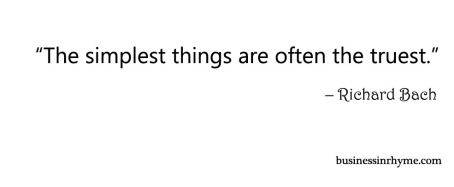There are two essential elements in every creative process: time and space. Considering time – we all have the same amount of time in one day. And I couldn’t agree more with the saying: “We manage activities, not time.” When it comes to creative process, as described in some of my previous articles, the moment when a creative outburst will happen is sometimes unpredictable: it’s up to us to be responsive and adaptive to it; turn on our antennas and pick up the signals of creativity as it comes along.
This second element, is one that we have even more control over: space. We make or clutter our space – for anything we do. In this article I go in length about the importance of simplicity for a productive usage of time and executing our tasks. Clean, minimalistic space is a prerequisite in my opinion for developing a fertile conditions for a productive creativity. Removing distractions: visual, acoustic and physical clutter is often an overlooked reason why we procrastinate, don’t react upon given creative urge.
You know the situation: you have an interesting idea, but you have some chores to do, you can’t find paper and pencil to write it down, then you think like “OK, I’ll get to it later”…but later never comes and the creative impulse is gone. Decluttered space gives us the chance to be proactive with our ideas, ready like an alert athlete on the start line to “run” our creative race with best results.
There is an intrinsic relationship between what you do and the place you work. Room that is stuffed with unnecessary things, desk with piles of paper, books, gadgets that we don’t need for our momentary work can bring tension and anxiety and in times acts as an obstacle to our creativity.
But that’s not all. Cleaning your desk and purging stuff is the easy part. Emotional baggage that we all carry and our psychological clutter is also something we need to “clean” from time to time.
Zen masters often refer to something that’s called “a beginner’s mind”. A beginner’s mind is open to many possibilities while expert mind recognizes only few. Now, I try to approach this philosophy from two angles. One, is to be open-minded as much as possible and try somehow to avoid previous experiences to block our view of possible creative processes:
“I’ve tried this one, it didn’t work!”
“It’s out of my reach!”
“I don’t have the skills to do this”…
That kind of internal dialogue should be turned off and we need to detach from previous experiences – especially the bad ones. In a way is a “de-conditiong” the psyche, which allows you to reconnect with your true nature. The second angle of tackling this topic is living in the present moment, without dwelling on the past and future which can distract you from your direction in the creative process.
It’s interesting to note that many writers and creatives have faced creativity block throughout their life. During the most of the 1910s, Rilke had suffered from a severe depression. In the early 1920’s he moved to Switzerland, where he meets Werner Reinhart, a merchant that acted as his patron. He purchased Château de Muzot in Veyras, a thirteenth-century manor, (no gas or electricity) to support Rilke to live there rent-free and focus on his work. Rilke closed himself for days, where without any distractions coming from the outer world, he wrote Sonnets to Orpheus and completed the Duino Elegies in “a savage creative storm” as he used to say, during three weeks in February 1922.
Starting form scratch with your creative work, you need open, clear, bright space (both physically and in your mind) to focus on your raw elements and possible arrangement patterns. Your attention needs to be hostage-free from any distraction, noise, stuff intruders and information pollution. This will increase your chances for innovative thinking, your ability to recognize the opportunity that will not hide behind the curtain of unnecessary things. Being adaptive in dealing with surprise is being able to take advantage of serendipitous, potentially valuable ideas.
The Sonnets To Orpheus: Xix by Rainer Maria Rilke
Though the world keeps changing its form
as fast as a cloud, still
what is accomplished falls home
to the Primeval.
Over the change and the passing,
larger and freer,
soars your eternal song,
god with the lyre.
Never has grief been possesed,
never has love been learned,
and what removes us in death
is not revealed.
Only the song through the land
hallows and heals.



Great post!
LikeLiked by 1 person
Thanks:)
LikeLiked by 1 person
Once again I am inspired by your writing. You’ve made me think about number of things I need to adapt. When you speak of creative people being prone to depression due to writer’s block or emotional/physical clutter, I guess it also speaks to the kind of people we are. We feel more deeply, we think more deeply. But still the principles of time and space are important not just for writing but any aspect of our lives. Thank you.
LikeLiked by 1 person
I totally agree with you Chevvy. For whatever we do need space and time which leads to clear mind and productivity. Simple as that 🙂
LikeLiked by 1 person
This is a lesson I really need to learn. My creative space is anything but.
LikeLiked by 1 person
Give it a try: clear your space and watch what happens:)
LikeLike
Thank you. Once again.
LikeLiked by 1 person
You are welcome, I’m glad you find it helpful! 🙂
LikeLike